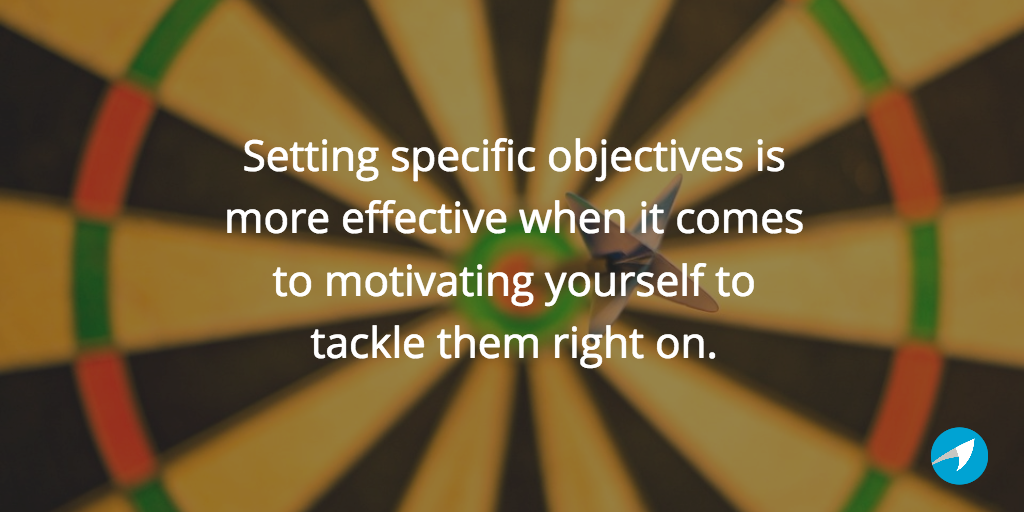
I’m sure we’re all familiar with procrastination. I’ll start a new diet Monday, I’ll go back to school next year, I’ll work on that presentation after dinner. Do any of these statements sound familiar? They do to me. I even procrastinated writing this article, because my brain is kind of a prick sometimes.
In moderation, procrastination isn’t that bad. However, when you continually postpone doing the things that are good for you, it becomes a big problem. And when you’re a freelancer, too much procrastination can lead to missed deadlines or excessive stress.
Figuring our why people procrastinate isn’t rocket science. We do it because we choose to feel good now rather than feel better later. We opt to engage in activities that make us happy at the moment instead of delaying gratification and receiving a larger or more enduring reward at a later date. More often than not, we choose to postpone activities we’re not particularly fond of, whether we’re talking about eating healthier or finishing up an assignment for work.
7.png)
When you work for yourself, keeping your procrastination at a manageable level can be tricky. With no boss looking over your shoulder and a plethora of distractions at every turn, it’s tempting to delay work until you ~feel more productive~ or ~check that totally unimportant errand off your to-do list~. But hiding from work and facing deadlines only when they’re unavoidable won’t help you build a successful small business. In fact, chronic procrastinators will never reach their true potential unless they learn to control the issue and stop putting off finally tackling their goals. Here’s how you can do just that. I even have science to back up my claims.
Set Concrete Goals
Abstract goals may be fun to fantasize about, but there’s a smaller chance you’ll actually pursue them. Setting specific objectives, on the other hand, is more effective when it comes to motivating yourself to tackle them right on. Moreover, according to a study, focusing on concretely framed goals keeps your expectations in check, which is always a plus. So instead of challenging yourself to “grow your client base”, think of a more specific target – like applying to three new gigs per day. That sounds more doable, right?

Break Big Tasks into Manageable Chunks
We sometimes procrastinate because a certain task feels too difficult or time-consuming. To avoid this, make it a habit to break down each huge project or goal into smaller assignments. For instance, writing a book can seem like a huge undertaking, but setting out to write one chapter per week doesn’t feel so bad. Creating an entire website for a client can seem daunting, but creating just the homepage may actually be fun. You get the point. Even MIT advises students to break down large projects into smaller tasks and reward themselves after finishing each one.
Follow the 2-minute Rule
The 2-minute rule is pretty straightforward: whenever a task takes less than two minutes to complete, do it now. Whether we’re talking about answering an email, adjusting a font, or proof-reading a short article, don’t postpone the activity. This tip comes straight from David Allen’s bestselling book, Getting Things Done. Here’s what he had to say on the subject: I have a two-minute rule that says: If you determine an action can be done in two minutes, you actually should do it right then because it’ll take longer to organize it and review it than it would be to actually finish it the first time you notice it. Makes sense. Furthermore, this allows you to check something off your to-do list before even adding it, which is pretty liberating.
4.png)
Commit for 5 Minutes
According to research by Kenneth McGraw, the most difficult step you must take when tackling a task is getting started. Once you get the ball rolling, it’s much easier to keep going until the assignment or project is done. Luckily, there’s a way around this – tell yourself you will only do the dreaded task for five minutes. Give yourself the liberty to drop the task if you’re not feeling it after that window of time and do something else. More often than not, you’ll find yourself completely immersed in what you’re doing and eager to finish. Magic.
Think in Smaller Time Units
Another study, by Neil Lewis and Daphna Oyserman, says that in order for the future to energize and motivate current action, it must feel imminent. The two psychologists found that if we look at a far-off event in terms of days instead of months or years, the event seems like it would happen sooner. How can this help you finally stop procrastinating? Simple. Instead of telling yourself that your deadline is still three days away, tell yourself you’ve only got 72 hours left to get things done. This should give you the motivation needed to start work sooner rather than later.
Spice up Tedious Tasks
When we find a task boring or low-value, we’re more likely to procrastinate. According to a paper titled The nature of procrastination, low task value is considered one of the four pillars of procrastination, along with personality, fear of failure, and expectations. You can easily fix this by spicing up tasks you view as tedious - make them into a game or associate them with a more pleasant activity. For instance, whenever I’m required to write a lengthy email I’m not excited about, I do it while listening to Beyonce. If I have to write yet another article about a subject I’m not fond of, I time myself to see if I can do it faster than last time. It might sound silly, but it works.
Free up Your Schedule
Here’s the ugly truth: Sometimes we procrastinate because we’re too tired and we simply need a break. If you’re always in the habit of adding too many tasks on your to-do list, it may be time to rethink your strategy. Never take on more projects than you can handle and make sure your workload allows you to achieve a healthy work/life balance. It’s time you finally learn to say no from time to time.
Learning to do things that will benefit ‘future you’ instead of ‘present you’ takes practice, discipline, and a bit of motivation. You likely won’t be able to completely cut procrastination from your life, but using the tactics described above will at least give you a head start. Just don’t put off giving them a try, okay?
Enjoy the article? Let us know with a like or retweet:
Do It Now: How to Finally Stop Procrastinating - https://t.co/88ijam89WE pic.twitter.com/IoQpQIn8O0
— Harpoon (@HarpoonApp) June 7, 2016







